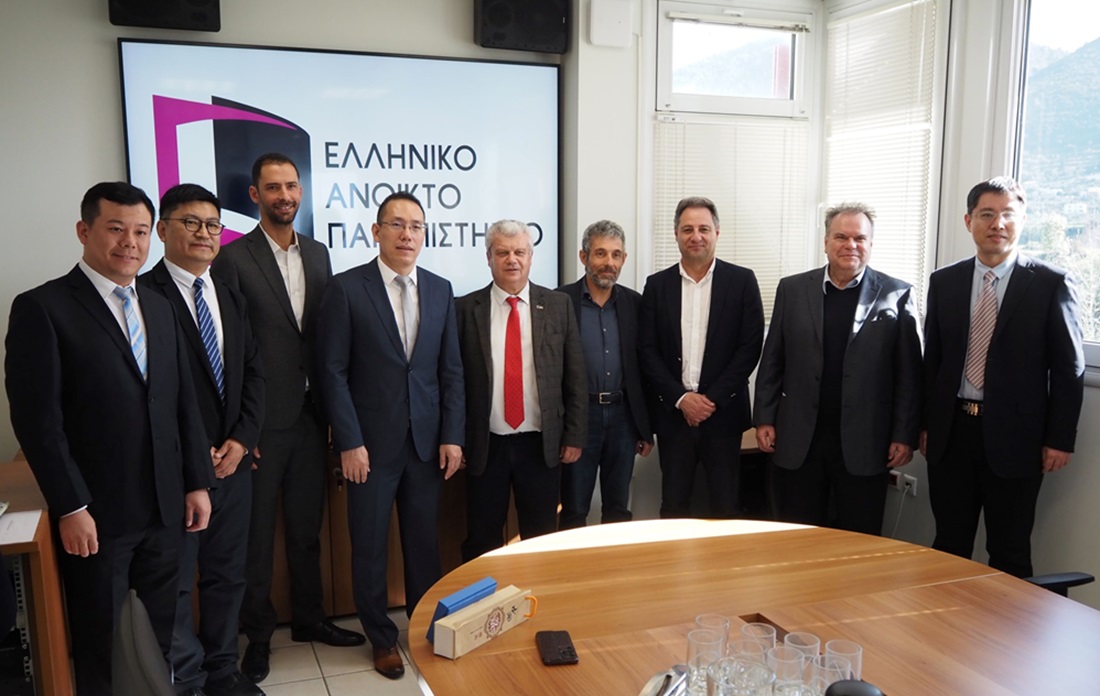
Ioannis Kalavrouziotis: “Nothing is given for free, even for the smallest things you have to fight endlessly”.
Professor Ioannis Kalavrouziotis speaks to us as the President of the Hellenic Open University (HOU). He is a professor at the Hellenic Open University specializing in Liquid Waste Management. He assumed the position of responsibility in the leadership of the HOU in November 2022. He is the first President who comes from the academic community of the HOU and is proud that under his watch the HOU was led to full autonomy after 30 years.
The Hellenic Open University is an institution with a unique character and is constantly on the rise. As the only higher education institution offering distance learning, it has over 40,000 students. One of the key features of the philosophy of the HOU – as Mr. Kalavrouziotis tells us – is to facilitate access to quality higher education and lifelong learning for all, regardless of place of residence, time, age and any kind of limitation.
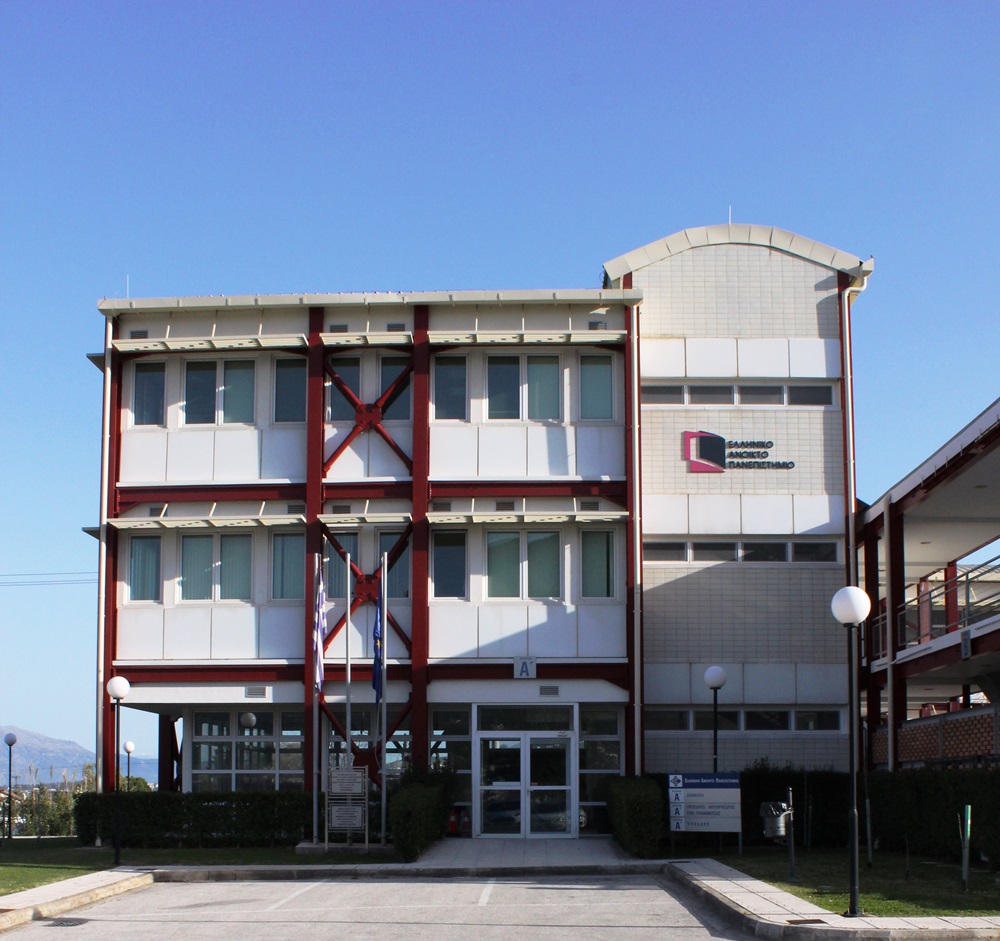
Mr.Kalavrouziotis’ agenda for the HOU includes the effort of extroversion and internationalization through collaborations with institutions within and outside Europe, the creation of joint study programmes, the implementation of joint research, actions and activities, exchanges, etc. The partnerships with the Open University of China (OUC), the Open University of Japan (OUJ) and the Indira Gandhi National Open University of India are indicative of these objectives. In Europe, the HOU is already an important partner in relation to open, distance and lifelong learning. Apart from the actions in which it participates as a member of European Associations and Organizations such as the European Association of Distance Teaching Universities (EADTU), HOU participates in the implementation of an important project concerning the creation of the first Pan-European University with the mission to establish a student-centered, inclusive, digital and green Open University, which will offer students a European and international experience and facilitate access to quality Higher Education and lifelong learning.
His vision for the future of the Hellenic Open University is the creation of an open and at the same time international University which will attract both Greek and foreign students and will offer quality studies enabling all citizens regardless of age to be educated and trained in the most modern subjects and specializations.
It seems that Professor Ioannis Kalavrouziotis sets goals and achieves them. We can only wish these efforts every success.
Interviewed by Thanasis A. Vasileiou
You are the head of the HOU from 2022. What should we know about the man Ioannis Kalavrouziotis?
For me personally, it is a great honor that from November 2022 I am the President of the Hellenic Open University’s Administrative Committee, the first President from within the academic community of the institution and the President who during my term of office led the Hellenic Open University to full autonomy after 30 years. This is because, admittedly, several Administrative Committees have passed until today but none of them managed to autonomize our unique Open and Distnace Education and Lifelong Learning University. I feel very proud of this and, you know, the benefits of autonomy will soon be seen as the HOU will not differ organizationally and administratively from the other 23 Greek public universities. Allow me to declare that I am proud of my place of origin, the small village of Kalavrouza in Nafpaktia, Aitoloakarnania. Although I was born in Patras, my childhood years were spent mainly during the summer months in my village. I graduated from the Pilot Gymnasium of Patras, and even had the luck to be a student in the first class of the then new and prominent school. I completed my higher education at the Faculty of Agriculture of the Aristotle University of Thessaloniki, and then, being an agronomist of the Ministry of Agriculture, I completed my doctoral thesis at the Geological Department of the University of Patras. After 15 years in the public sector, I was elected Lecturer at the Department of Environmental Management and Natural Resources of the University of Ioannina and served until 2013, reaching the rank of Associate Professor. I was then elected to the same level at the HOU where I am still serving today in the Faculty of Science and Technology. Some of my positions of responsibility to date are worth mentioning: Director of Studies of the MSc ‘Waste Management’, Coordinator of the module ‘Liquid Waste Management’ DIA (60) July 2013-until today. Director of the “Sustainable Waste Management Technologies Laboratory” since 2017.Dean of the School of Science and Technology of the Hellenic Open University (since September 01, 2016, re-elected in May 2019 for a three-year tenure until October 19, 2022). Member of the Administrative Committee of the Hellenic Open University. Visiting Professor at Hubei University, China (2018-2022). Member of the Board of the Geotechnical Chamber of Greece 2000-2003. Director of the Region of Western Greece from 30/1/93 to 25/11/93. Member of the Board of the Organisation for the Certification and Supervision of Agricultural Products , representative of the Geotechnical Chamber of Greece 2004-2005. Member of the Board of the National Agricultural Research Foundation (NAGREF), 2006-2009. President of the Messolonghi Lagoon Management Body, private law entity of the Ministry of the Environment, Urban Planning and Public Works, June 2006 – January 2010. Member of the DOATAP (Hellenic National Academic Recognition and Information Center) Board since March 2020; President of the Regional Council of Research and Innovation of the Region of Western Greece (April 2020). Chairman of the Management Committee of International Water Association Specialist Group on Water and Wastewater in Ancient Civilizations. The administrative positions I have been called upon to hold to date have been positions of service for me, and that is what I have done to this day. And they have filled me with important experiences. I would like to add that I served for 24 months in the Hellenic Air Force as a cadet Officer in 1984-86, of which I am particularly proud.
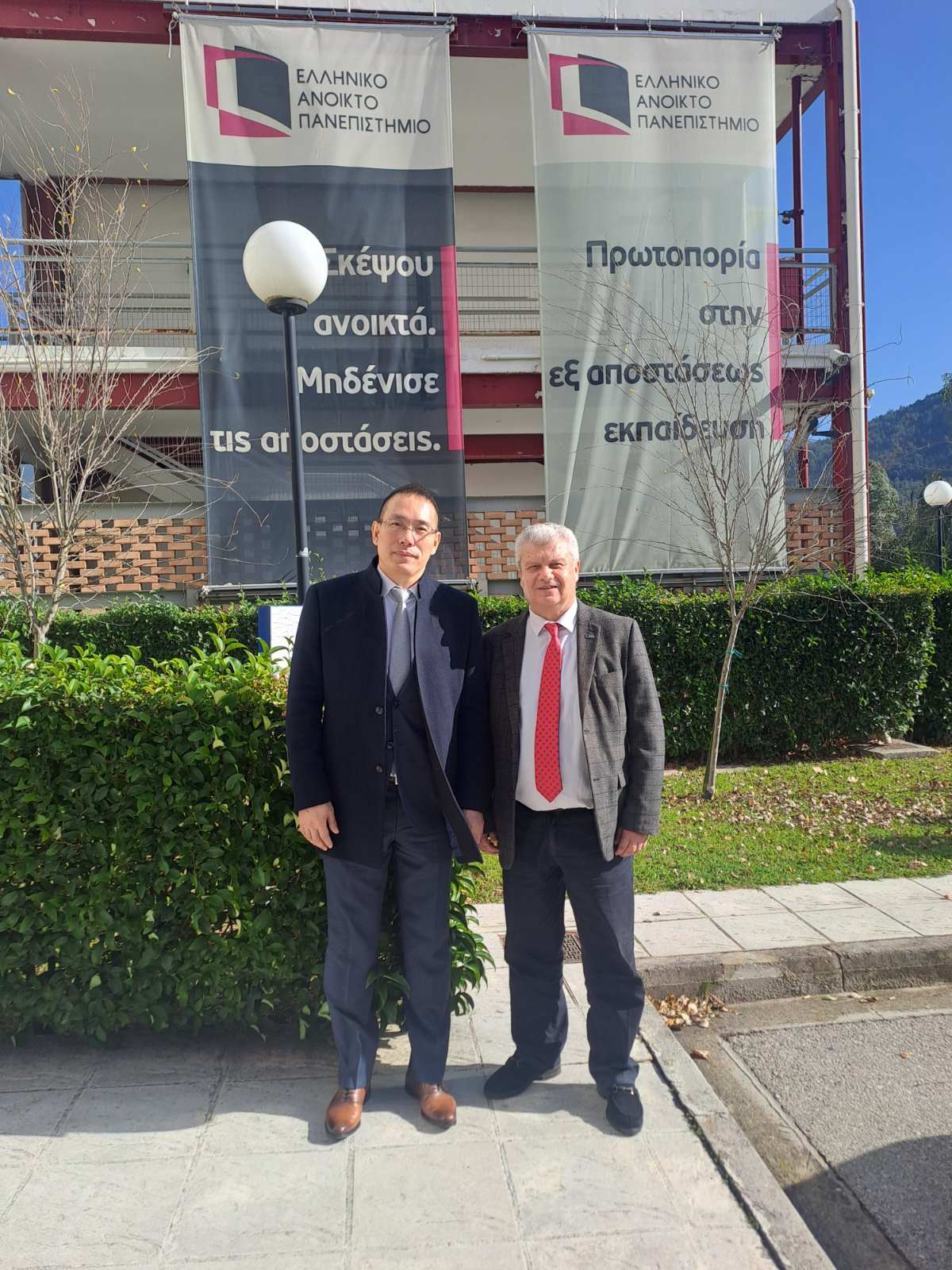
The President of the HOU, Prof. Ioannis Kalavrouziotis with the Vice President of OUC, Prof. Li Song during his visit to the HOU premises in Patras
You are the first president of the HOU to come from the very heart of the institution. Does this have any special significance for the HOU?
The HOU is the only University that has an Administrative Committee to date and the fact that one of the 50 or so faculty members of the institution was appointed President for the first time was the first important step that would lead to the autonomy of our University and subsequently to the announcement of the elections for the members of the Administrative Council and the election of the first Rector. So I am particularly happy and proud that this has finally been achieved during my term as President, because finally after almost 30 years of operation of the University, the provision allowing the self-governance of the institution has been passed and we will soon proceed to Rectorial elections.
They believe that you are responsible for the extroversion of the HOU. For example, recently the Hellenic Open University, in the context of its internationalization, both at academic and research level, welcomed representatives of the Open University of China (OUC). Would you like to talk to us about this aspect of the HOU’s activities?
Lately we have been trying to internationalize the HOU by developing partnerships with institutions in Europe and beyond. The object of these collaborations is, among others, the creation of joint curricula, the implementation of joint research, activities and actions, exchanges/mutual visits of members of the university community, participation in seminars, conferences, workshops, lectures, etc. and the exchange of views, data, experiences and publications. Some of the universities with which we have established partnerships are the Open University of China (OUC), the Open University of Japan (OUJ) and the Indira Gandhi National Open University of India. In fact, as you mentioned, in September and January 2024 respectively, we had the great pleasure and honor to welcome, in the context of the extroversion and internationalization of our University, five-member delegations from the Open Universities of China and Japan, consisting of the President, Vice Presidents and Professors. The visits worked perfectly and we are already in discussions on the implementation of our common objectives.
Finally, I would like to mention that the HOU participates in many important actions that take place in Europe as it has become an important partner in the European scene in relation to open, distance and lifelong education. Apart from the actions in which the HOU participates as a member of European Associations and Organizations such as the European Association of Distance Teaching Universities (EADTU), indicatively I mention that we recently convened in Barcelona to discuss the implementation of an important project concerning the creation of the first Pan-European University with the mission to establish a student-centered, inclusive, digital and green Open University, which will offer students a European and international experience and will facilitate access to quality Higher Education.
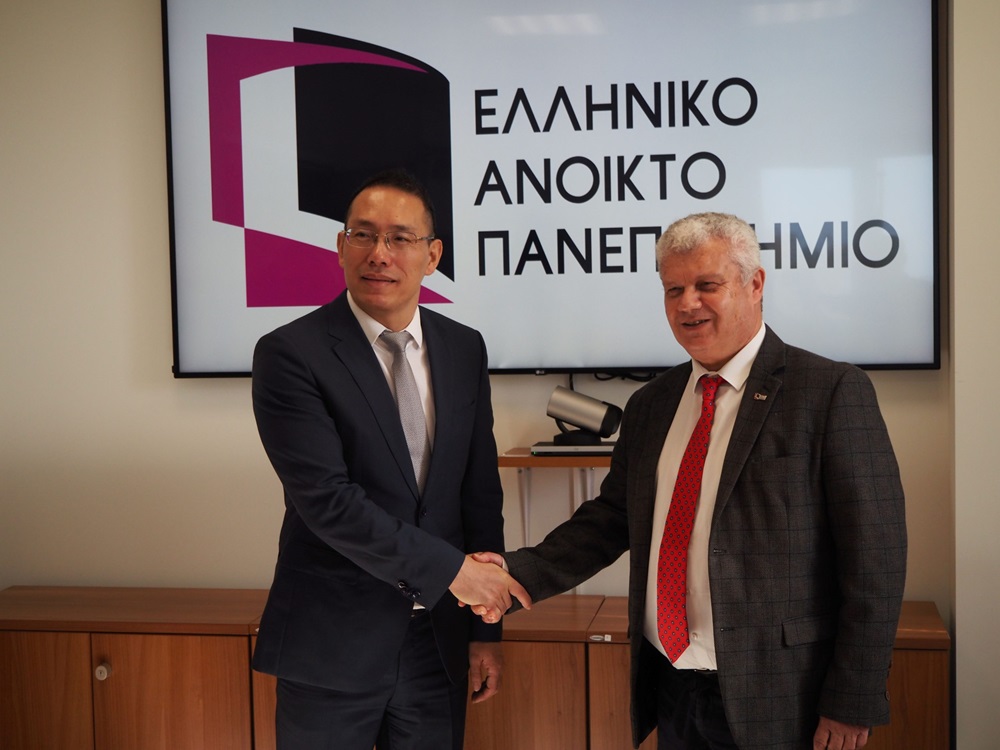
The President of the HOU, Prof. Ioannis Kalavrouziotis with the Vice President of OUC, Prof. Li Song.
People who know you say that you set goals and achieve them. Recently, you were appointed President of the International Water Association (IWA), the international scientific group dealing with water and waste in ancient civilizations. Would you like to tell us about it?
Yes, admittedly I always set goals. After all, that’s what I had learned from my teachers from my high school years. But regardless of whatever goals one sets, trying to achieve them requires serious and responsible work and passion, I would say. Nothing is given for free, even for the smallest things you have to fight endlessly. I am particularly happy about my professional journey so far.
What goals does Ioannis Kalavrouziotis and what goals does the President of the HOU set for the university?
There is not much. What is meaningful to me is to contribute with my knowledge and experience in the few remaining years before my retirement to the effort for the emergence of the HOU as a modern University with international enviable presence, something we are trying to do in the context of internationalization and opening to similar institutions in Europe, the United States and Asia recently.
The HOU and you personally undertook initiatives of scientific and humanitarian aid for the victims of the recent floods in Thessaly. Would you like to tell us about this action? How do we shield ourselves against the effects of climate change? Do the wounds of a natural disaster heal?
The academic community of the Hellenic Open University, upholding the values of solidarity and mutual aid and in order to support our fellow citizens who were affected by the floods that hit the Thessalian cities in early September, collected a large number of essential products to support our fellow citizens. It also decided to grant financial exemption for the current academic year (2023-2024) to students living in the Municipality of Palamas, which, as we know, was the most affected by the devastating floods. The HOU decided to stand by the affected people and the state, revealing once again its social character and actively supporting the citizens of the country, reminding that education, training, learning and research are the most important pillars of a country’s development.
Shielding against the impacts of climate change requires a combined effort from many entities and here the role of education should be emphasized as it is of major importance in raising awareness and informing the public about both the response and the impacts of climate change. The traumas of a natural disaster may be able to heal over time and through effective responses such as rebuilding infrastructure, reconstructing communities, providing humanitarian assistance, addressing environmental impacts and implementing precautionary measures to reduce the risk of similar situations recurring. However, the effects of a natural disaster may linger for a long time or even fail to fully heal, such as the psychological effects on people who have experienced the natural disaster. Dealing with the effects of a disaster requires patience, cooperation, dedication and commitment from many entities.
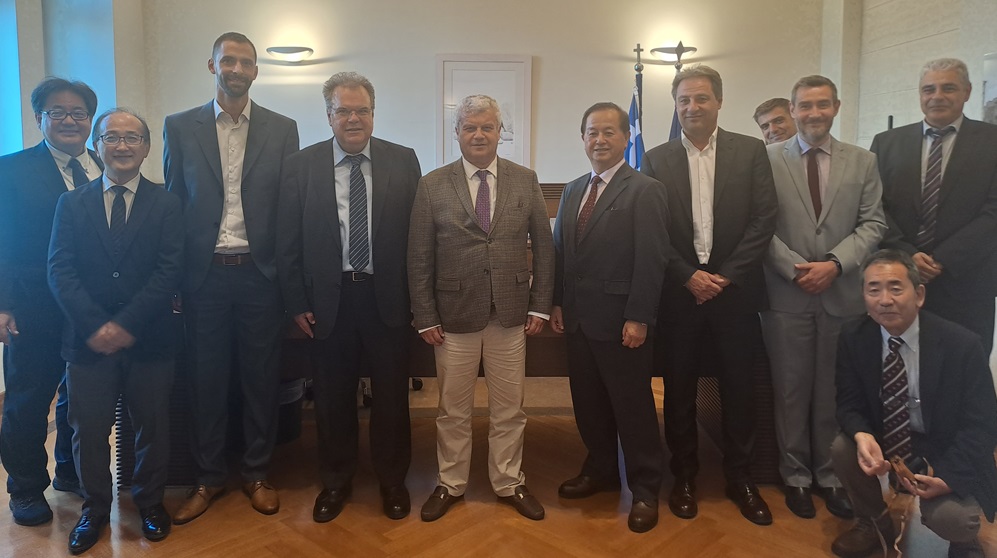
Meeting of members of the delegation of the Open University of Japan (OUJ) with the President, Vice Presidents and Rectors of the Hellenic Open University
“… the role of education, which is of major importance in raising awareness and informing the public about both the response and the impacts of climate change, should be emphasized.”
In Greek society, many things have changed and are still changing (for example, the connection with the Greek Diaspora through absentee ballot, the discussion on the establishment of non-profit universities, thoughts on changing Article 16 of the Constitution, etc.). On the other hand, there are distortions, inequalities and poverty. How do the many faces of Greek society affect the HOU?
The HOU, as an educational institution, is an integral part of the Greek society and it is natural and logical that it is directly affected by it. In its effort to address the distortions, inequalities and poverty that exist in Greek society, it offers programmes of study that are accessible to various social groups through the promotion of open education and through the advocacy of equality in education for all citizens. One of the key features of the philosophy of the HOU is, after all, to facilitate access to quality Higher Education and lifelong learning for all, regardless of place of residence, time, age and any kind of limitation.
“One of the key features of the philosophy of the HOU is, after all, to facilitate access to quality Higher Education and lifelong learning for all, regardless of place of residence, time, age and any kind of limitation.”
Would you like to tell us about the structure of the HOU? What are the disciplines, faculties and departments? What can we expect for the future?
The HOU is, as you know, a public Higher Education Institution and the only distance learning university in Greece. Its mission is to provide undergraduate and postgraduate education and training, through the development and use of appropriate educational material and distance learning methods. The objectives of the HOU also include the promotion of scientific research, as well as the development of technology and methodology in the field of distance learning. In addition, apart from the undergraduate and postgraduate degree programmes, the HOU also organizes lifelong learning and training programmes that aim at continuing professional training, retraining, skills upgrading, general adult education, counseling, career guidance, etc.
The HOU consists of the School of Social Sciences, the School of Humanities, the School of Science and Technology and the School of Applied Arts and Sustainable Design and offers 9 Undergraduate Degree Programmes and 67 Postgraduate Degree Programmes, 8 of which are offered in English.
Our vision for the future of the Hellenic Open University is the creation of an open and at the same time international University which will be a magnet for both Greek and foreign students and will offer quality studies, enabling all citizens regardless of age to be educated and trained in the most modern subjects and specializations. We would like our University to acquire an international scope and a strong academic and research impact through the strengthening of targeted research that is already taking place at the HOU as we already have 20 institutionalized laboratories such as physics, chemistry, mathematics, biology, where undergraduate laboratory exercises are carried out, but also in the other laboratories of our 4 faculties where important research work is carried out.
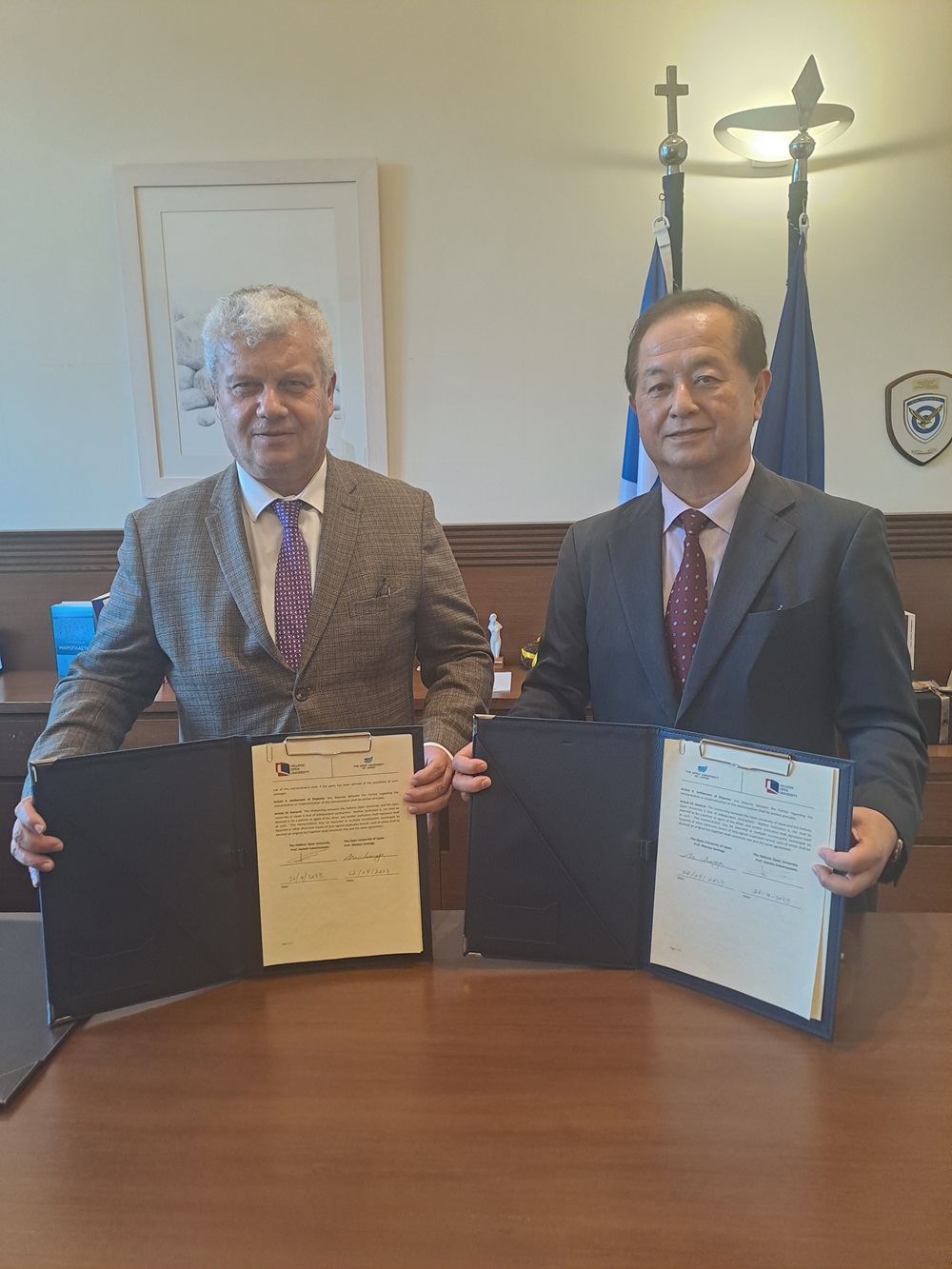
Signing of the Memorandum of Cooperation between the HOU and the OUJ by the President of HOU, Prof. Ioannis Kalavrouziotis and the President of the OUJ, Prof. Masaya Iwanaga
Who is the HOU for?
Apart from the field of distance education, the Hellenic Open University stands for and serves the ideal of open education. This means that it enables all citizens, without exception, to train, study, and develop their skills and abilities, giving them the necessary skills to advance professionally, socially and personally, regardless of their place of residence, time, age and any kind of limitation.
“The HOU enables all citizens, without exception, to train, study, and develop their skills and abilities, giving them the necessary skills to advance professionally, socially and personally, regardless of their place of residence, time, age and any kind of limitation.”
What effect will the passing of the law on the strengthening of the public university and the operation of non-profit foreign universities have on the Hellenic Open University?
I believe that the HOU and its students have nothing to fear with the “arrival” of the non-profit universities as I am convinced that the state will create the appropriate structures and financial tools to shield the Greek University. It is time for Greece to take steps forward in relation to education.



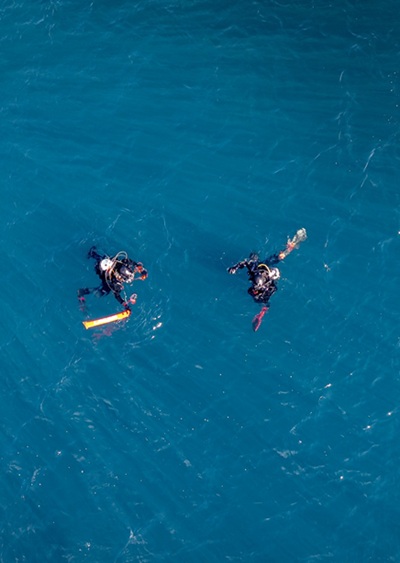
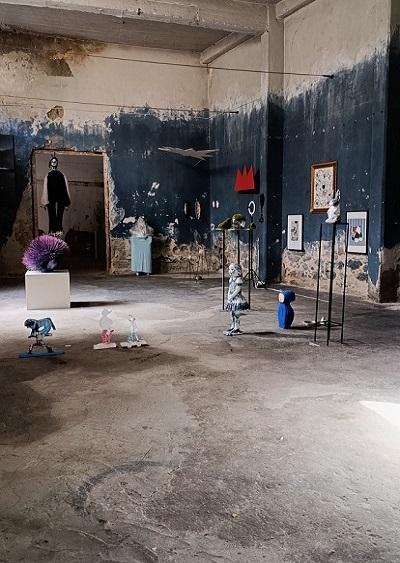


Leave A Comment